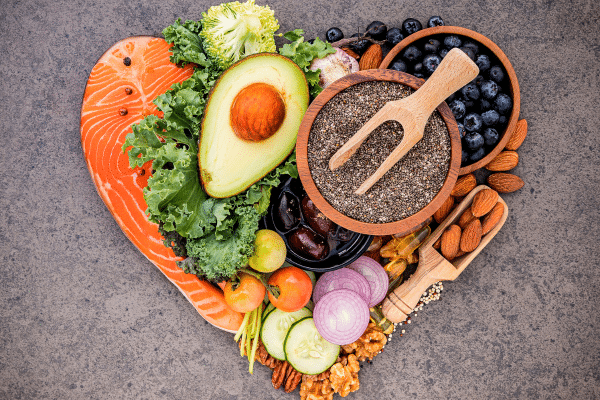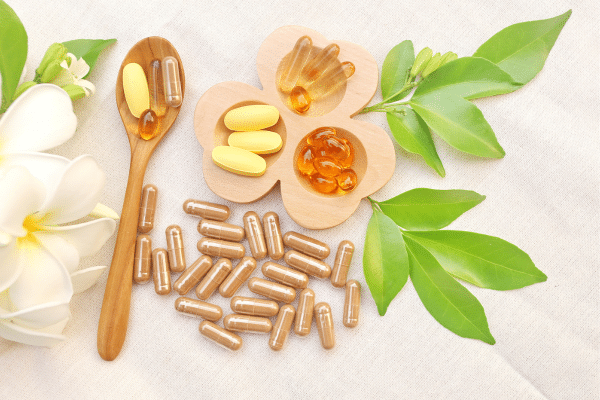Cholesterol, a fatty substance found in the blood, plays an essential role in building cell membranes and hormones. However, elevated levels can pose a significant risk to heart health, leading to diseases such as atherosclerosis, heart attacks, and strokes. Finding effective methods to manage and reduce high cholesterol becomes paramount for many, especially in an era where people seek holistic and natural approaches. This article delves into several natural strategies that can assist in achieving a healthy cholesterol balance, ensuring both vitality and longevity.
Contents
Exercise Regularly

Engaging in regular physical activity is an indispensable tool for anyone keen on managing their cholesterol. Cardiovascular exercises, such as walking, jogging, swimming, or cycling, have been proven to elevate HDL, the so-called “good” cholesterol. This increase, in turn, assists in transporting LDL, the “bad” cholesterol, to the liver, where it’s processed and eliminated from the body. Besides its direct impact on cholesterol, exercising boosts overall cardiovascular health and aids in weight management, both crucial for maintaining healthy cholesterol levels. It’s recommended that adults aim for at least 150 minutes of moderate-intensity aerobic exercise weekly.
Regular exercise does more than just sculpt the body. Beyond its visible results, it brings about biochemical changes that foster a healthier internal environment. Elevated heart rates during activities result in improved blood flow, ensuring that essential nutrients reach every cell. As muscles contract and the body sweats, toxins are expelled, making way for better physiological function. Committing to a consistent exercise regimen is akin to investing in a health insurance policy, with dividends paid in the form of a longer, healthier life.
Eat A Heart Healthy Diet

Dietary choices lay the foundation for one’s overall health and, by extension, cholesterol levels. Foods rich in soluble fiber, such as oats, beans, lentils, fruits, and vegetables, aid in reducing the absorption of cholesterol into the bloodstream. Omega-3 fatty acids, found abundantly in fatty fish like salmon, mackerel, and sardines, have been shown to decrease LDL cholesterol, thereby lowering the risk of coronary artery disease. Swapping out saturated fats from meat and dairy with unsaturated fats from olive oil, avocados, and nuts can further help in regulating cholesterol levels.
However, achieving a heart-healthy diet isn’t solely about adding beneficial foods. It’s equally crucial to identify and limit the intake of harmful ones. Processed foods often contain trans fats, an artificial form of unsaturated fat that can elevate LDL cholesterol while decreasing HDL. Sugary items and refined carbohydrates, although tempting, can lead to weight gain, subsequently affecting cholesterol levels adversely. It’s advisable to read food labels diligently and prioritize whole, unprocessed foods to ensure a diet that genuinely supports heart health.
Limit Alcohol

Moderate alcohol consumption might be linked to certain health benefits, especially for heart health. Some studies suggest that controlled intake, particularly of red wine, can elevate HDL cholesterol levels. However, it’s essential to understand what ‘moderate’ means in this context: one drink a day for women and up to two drinks for men. Beyond this limit, alcohol can not only impact cholesterol but also have several other detrimental effects on overall health, including liver disease and high blood pressure.
Too much alcohol doesn’t just risk addiction; it can harm the body’s delicate balance. Excessive drinking can lead to weight gain, a critical factor in cholesterol elevation. Additionally, alcohol is known to interfere with medications, some of which might be prescribed to manage cholesterol levels. Therefore, it’s always advisable to have a clear understanding and be mindful of the amount being consumed. If in doubt, seeking guidance from a healthcare professional can offer clarity.
Prioritize Sleep

The importance of sleep extends far beyond merely feeling refreshed. Sleep quality and duration play a crucial role in various metabolic functions, including the regulation of cholesterol levels. Chronic sleep deprivation can lead to disruptions in these processes, elevating the risk for high LDL cholesterol and decreased HDL cholesterol. A consistent sleep schedule, ensuring 7 to 9 hours of rest nightly, can go a long way in promoting heart health.
However, achieving quality sleep isn’t just about its duration. The sleep environment matters too. A dark, quiet, and cool room can enhance sleep quality. Avoiding electronic screens, caffeine, and heavy meals close to bedtime can also aid in falling asleep faster and ensuring deep, restorative rest. Recognizing and respecting the link between sleep and cholesterol can act as a cornerstone for a comprehensive approach to heart health.
Maintain A Healthy Weight

Carrying excess weight, especially around the abdominal area, is linked to elevated LDL cholesterol and lowered HDL cholesterol levels. Weight management, therefore, becomes a focal point in the quest for optimal cholesterol. Adopting a balanced diet and incorporating regular physical activity into daily routines can help shed those extra pounds and, in turn, lead to improved cholesterol readings.
It’s crucial to remember that rapid weight loss through extreme diets or measures isn’t sustainable or healthy. Instead, aiming for a gradual reduction, about 1-2 pounds a week, is more beneficial and sustainable in the long run. Monitoring portion sizes, staying hydrated, and integrating both aerobic and strength training exercises can be effective strategies. Moreover, even a small weight loss of 5-10% of the body weight can lead to significant improvements in cholesterol levels.
Quit Smoking

The harmful effects of smoking are well-documented, spanning a range of health issues. When it comes to cholesterol, smoking has a detrimental impact on HDL, or the “good” cholesterol, reducing its levels in the bloodstream. A decrease in HDL is concerning because it plays a protective role against heart disease by assisting in the removal of LDL, or “bad” cholesterol, from arterial walls.
Not only does quitting smoking restore HDL cholesterol levels, but the benefits of cessation begin almost immediately. Within 20 minutes of quitting, heart rate and blood pressure drop, and within a few weeks, circulation and lung function improve. Over the long term, the risk of coronary heart disease diminishes significantly, reaching that of a non-smoker’s within about 15 years.
Use Natural Supplements

Natural supplements can be an adjunctive approach for those looking to manage their cholesterol levels holistically. Some supplements, like red yeast rice, have compounds that can help reduce LDL cholesterol. Fish oil, rich in omega-3 fatty acids, can be an asset in reducing triglycerides, another form of fat in the blood that, when elevated, can contribute to heart disease. Psyllium husk, a form of soluble fiber, aids in lowering LDL cholesterol by binding to cholesterol particles in the intestines and preventing their absorption.
It’s imperative to tread with caution when introducing any supplement. Even natural remedies can interact with medications or have side effects when consumed in large amounts. Therefore, before integrating any supplement into a regimen, it’s best to consult with a healthcare professional to ensure it’s both safe and beneficial.
The Bottom Line
Achieving and maintaining optimal cholesterol levels is a journey that requires a multifaceted approach. Lifestyle changes, dietary adjustments, and even the introduction of specific natural supplements can collectively make a significant difference. While each individual’s journey may vary, the ultimate goal remains consistent: a healthier heart and a prolonged, quality life. Embracing these natural methods provides not just a solution to cholesterol woes but also paves the way for overall well-being.


